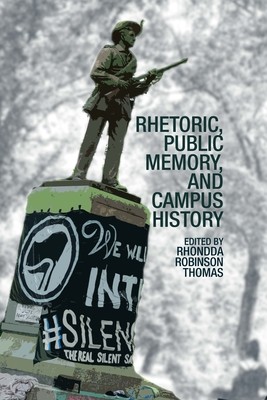
- We will send in 10–14 business days.
- Publisher: Clemson University Press in Association with Liverpool University Press
- ISBN-10: 1638040206
- ISBN-13: 9781638040200
- Format: 15.2 x 22.9 x 1.6 cm, hardcover
- Language: English
- SAVE -10% with code: EXTRA
Rhetoric, Public Memory, and Campus History (e-book) (used book) | bookbook.eu
Reviews
Description
This essay collection explores the inextricable link between rhetoric, public memory, and campus history projects. Since the early twentieth century after Brown University appointed its Steering Committee on Slavery and Justice, higher education institutions around the globe have launched initiatives to research, document, and share their connections to slavery and its legacies. Many of these explorations have led to investigations about the rhetorical nature of campus history projects, including the names of buildings, the installation of monuments, the publication of books, the production of resolutions, and the hosting of public programs. The essays in this collection examine the rhetorical nature of a range of initiatives, including the creation of land acknowledgement statements, the memorialization of universities' historic financial ties to the slave trade, the installation and removal of monuments or historical markers, the development of curriculum for campus history projects. The book takes a chronological approach, beginning with the examination of a project at a university that was built on the site of a historic Native American town, moving through a series of essays about initiatives that grew out of universities' associations with slavery and its legacies in the United Kingdom and America, and ending with a critique of several pedagological approaches in campus history courses designed for undergraduate students.
EXTRA 10 % discount with code: EXTRA
The promotion ends in 19d.23:34:09
The discount code is valid when purchasing from 10 €. Discounts do not stack.
- Publisher: Clemson University Press in Association with Liverpool University Press
- ISBN-10: 1638040206
- ISBN-13: 9781638040200
- Format: 15.2 x 22.9 x 1.6 cm, hardcover
- Language: English English
This essay collection explores the inextricable link between rhetoric, public memory, and campus history projects. Since the early twentieth century after Brown University appointed its Steering Committee on Slavery and Justice, higher education institutions around the globe have launched initiatives to research, document, and share their connections to slavery and its legacies. Many of these explorations have led to investigations about the rhetorical nature of campus history projects, including the names of buildings, the installation of monuments, the publication of books, the production of resolutions, and the hosting of public programs. The essays in this collection examine the rhetorical nature of a range of initiatives, including the creation of land acknowledgement statements, the memorialization of universities' historic financial ties to the slave trade, the installation and removal of monuments or historical markers, the development of curriculum for campus history projects. The book takes a chronological approach, beginning with the examination of a project at a university that was built on the site of a historic Native American town, moving through a series of essays about initiatives that grew out of universities' associations with slavery and its legacies in the United Kingdom and America, and ending with a critique of several pedagological approaches in campus history courses designed for undergraduate students.


Reviews